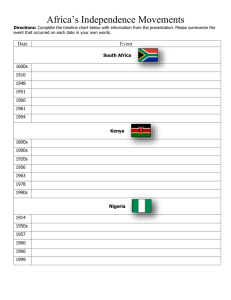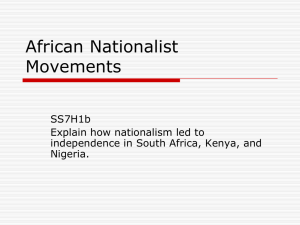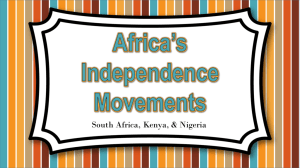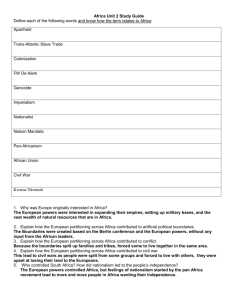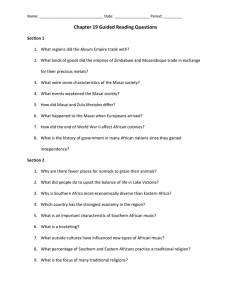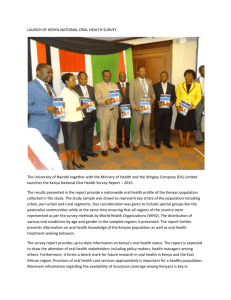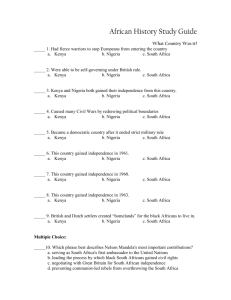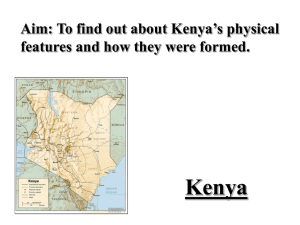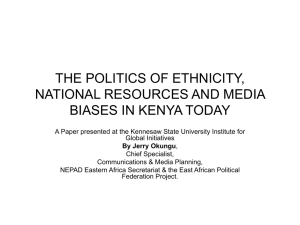Nationalism in Africa
advertisement
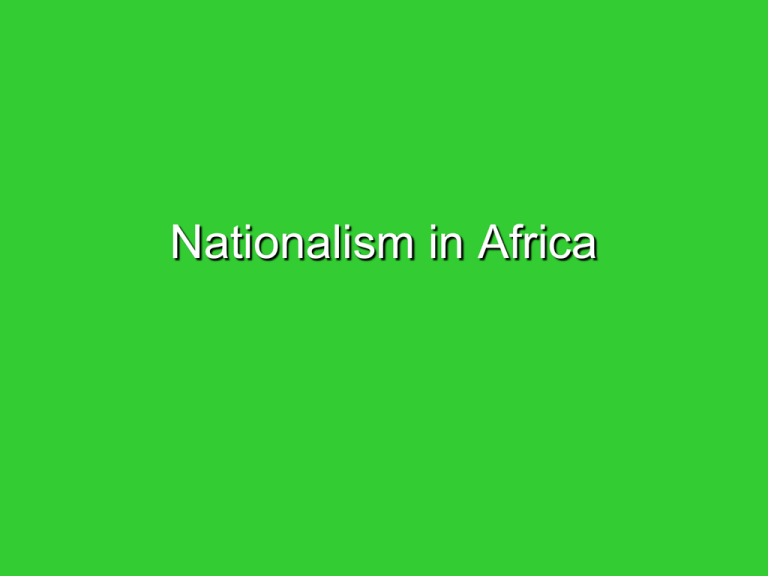
Nationalism in Africa Top White Margin Page 91 SS7H1b.d. • SS7H1b.d. b. Explain how nationalism led to independence in South Africa, Kenya, and Nigeria. d. Explain the impact of the PanAfrican movement. Top of page 91 • Write the question and answer – Is there anything (a cause, a belief, a person) that you would be willing to fight or possibly die for? Definitions-page 91 • Imperialism- complete control of a weaker nation’s social, economy, and government by a stronger nation • Nationalism- pride in one’s country or culture • Afrikaners- white settlers in South Africa Kenya • Colonized by: Great Britain • The British: – Took land, charged hut and poll taxes, made Kenyans work as slaves on British plantations – Identity cards restricted movement Kenya • Organizations were formed – Peaceful and violent demonstrations held • 1950’s Jomo Kenyatta arrested – sparked Kenyans to fight to the bitter end – Guerilla fighters fought British troops until Britain released Kenyatta and left • Dec. 12, 1963 – Kenya won their independence South Africa • Colonized by: Great Britain – Gained freedom around 1900 • Afrikaners: – Controlled the government, only whites could vote, blacks lived in Homelands – Identity cards restricted movement South Africa • Organizations were formed – Peaceful and violent demonstrations held • Nelson Mandela was imprisoned for 27 years for protesting apartheid • Mandela was freed in 1989 and was elected as the 1st black South African president in 1994. Nigeria • Colonized by: Great Britain • Organizations were formed – Became political parties that worked for Nigerian independence – Late 1940’s and 50’s British let Nigerians elect their own government • Independence- Oct. 1, 1960 – Nigerians did not have to fight the British for independence
